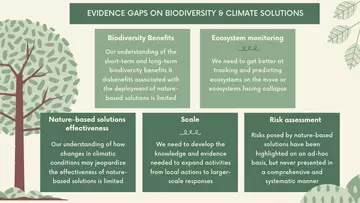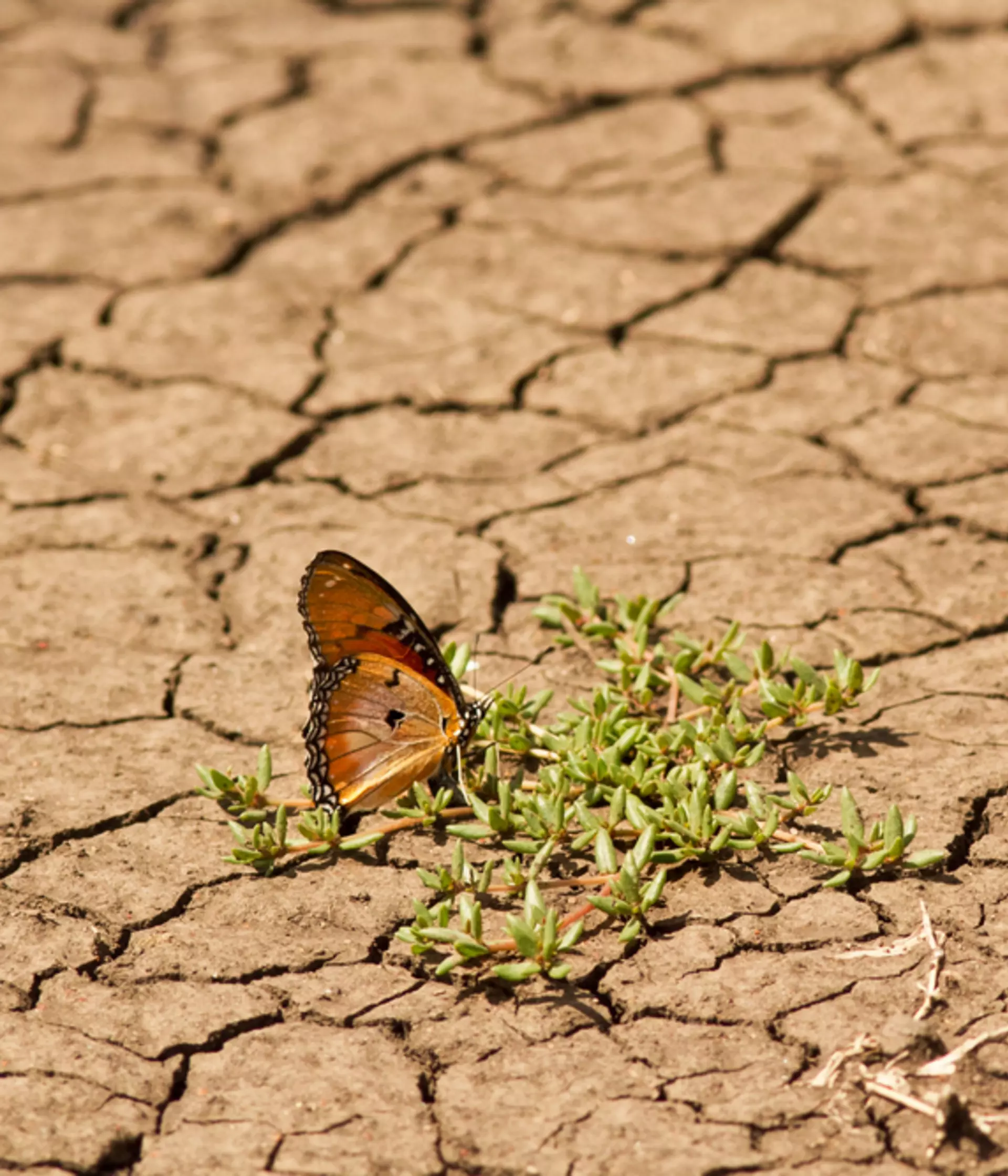Prof Nathalie Pettorelli
Professor, IOZ
Our environment is breaking down, taking with it the foundations of our economies, food security, health and quality of life.
Scientific advice from the International Panel on Climate Change and the International Platform on Biodiversity and Ecosystem Services could not be clearer: we need rapid bold collective action to transition economies to a low-carbon, sustainable, biodiverse future.
Interconnectedness between two crises
The climate change and biodiversity loss crises that underpin the breaking down of our environment are fundamentally connected. Interconnectedness between these two crises should not be underestimated: this is not just about climate change impacting biodiversity; it is also about the loss of biodiversity deepening the climate crisis. Reduced species abundance, local extinctions, as well as the rapid degradation and/or loss of ecosystems such as mangroves, tropical forests, peatlands and seagrass are indeed having a major impact on our planet’s ability to store carbon, while reducing nature and people’s ability to adapt to and/or cope with changing climatic conditions.
Because of these links, prioritising actions that jointly address both crises (known as Nature-based solutions, NbS) should be a no brainer. There are, however, uncertainties and difficulties associated with the implementation of NbS, while the evidence regarding their benefits for biodiversity remains limited. There is moreover no global, legally binding, platform dedicated to advancing an environmental agenda that equally supports biodiversity conservation and climate change mitigation and adaptation; nor is there a nominated scientific platform dedicated to assessing the evidence and issues around NbS and their implementation, or a clear, major funding mechanism that univocally enables countries to choose to invest in projects that equally support biodiversity conservation and climate change mitigation and adaptation.
Key research areas
In our study, we identify five key research areas where incomplete or poor information hinders the development of integrated biodiversity and climate solutions (see infographics). We are calling on world leaders through the platforms provided at the upcoming COP 26 UN Climate Change Conference, hosted by the UK in partnership with Italy in Glasgow, and the COP 15 Conference of the Parties to the Convention on Biological Diversity in Kunming, China, to develop coherent policy frameworks that align targets across the nexus of biodiversity and climate change. During these key meetings, we want to see nature at the heart of global decision making.

Specifically, we ask for (i) the substantial and chronic underfunding of global biodiversity conservation to be addressed; (ii) financial incentives that negatively impact biodiversity and/or climate change to be removed; (iii) higher levels of integration between the biodiversity and climate change agendas to emerge; (iv) a monitoring framework that enables the standardised quantification and comparison of biodiversity gains associated with NbS to be agreed; and (v) environmental legislation to better support biodiversity conservation in times of rapid climatic change to be developed.
When given the chance, nature will recover.
It is imperative that the upcoming windows of opportunity for making significant progress in tackling the breaking down of our environment are not missed; none of us wants to live in the future we are currently building for ourselves.
